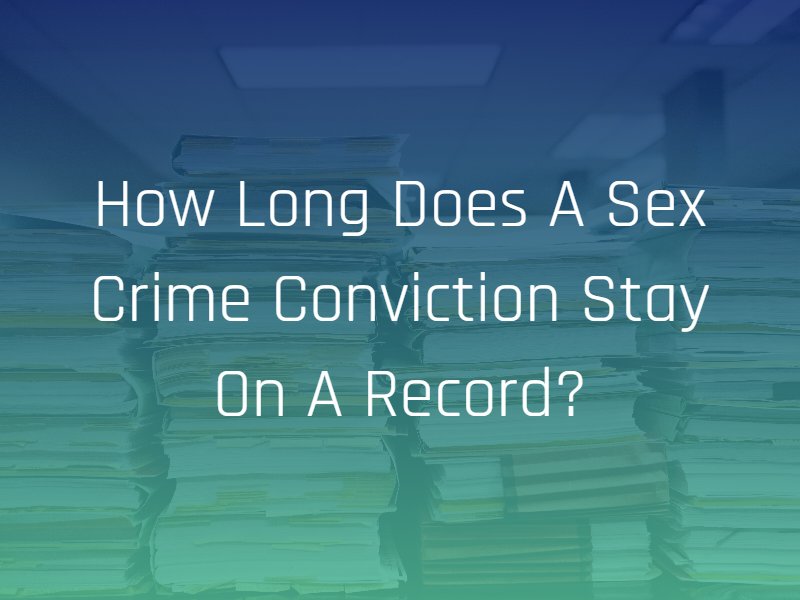A sex crime is a very serious criminal conviction. Every state has its own laws surrounding sex crimes, along with its own sex offender registries. Depending on the state where the crime occurred, perpetrators will likely need to register as sex offenders for several years, if not for life. Their criminal records may also be available as public records.
The amount of time a sex crime conviction remains on a person’s criminal record varies from state to state. However, since a sex offense is often a crime of moral turpitude, many states have laws that prevent a perpetrator from expunging, or removing, the conviction from his or her criminal history.
Sex Offender Registries
Under federal law, all states must have a sex offender registry available to protect the public. These registries often include a photograph of the perpetrator along with his or her personal information, such as his or her address, information about the conviction, and place of employment. The information available on these registries varies from state to state, and depending on the severity of the crime, a perpetrator may need to register as a sex offender for life.
For example, California replaced its lifetime sex offender registry requirement with a three-tiered registry system depending on the severity of the crime. A tier one sex offender, or a person convicted of the lowest level sex offense, must register for at least ten years. A tier three sex offender, or someone who committed one of the most serious sex offenses, must register for life.
A sex offender must register with his or her state registry, often annually, and comply with all reporting requirements. The offender must meet certain criteria in order for the state to remove him or her from the registry; in California, for example, a tier one sex offender could be removed from the registry through a petition, expungement, a pardon from the governor, or a certificate of rehabilitation. However, people who commit very serious sex crimes, such as those involving children, are not eligible for removal from the registry.
Can a Sex Crime Be Expunged?
Sex offenses are very serious crimes, and many states take them very seriously. While laws vary from state to state, it may be possible for a perpetrator to remove this crime from his or her record or from public view. In most cases, a person convicted of a sex-related felony will not be eligible for expungement.
For example, a California sex offender can request expungement if he or she successfully completes probation and did not serve time in state prison for the offense. The state will remove the charge and conviction off the criminal record, but the perpetrator will still need to register as a sex offender for the appropriate amount of time. If the case involves a minor, the offender will not be eligible for expungement.
Hiring a Lawyer After Sexual Assault
It can be very difficult for a sexual assault perpetrator to remove the crime from his or her record. However, it can be even more difficult for a survivor to come forward and hold the perpetrator accountable for his or her actions. If you are survivor of sexual assault, you are not alone, and help is available.
A sexual assault lawyer with experience advocating for survivors can help you seek justice from the person responsible for the assault. Your attorney will help you find resources to support your recovery, explain your legal options, and represent you in certain proceedings. Contact a sexual assault attorney as soon as possible to discuss your next steps.

